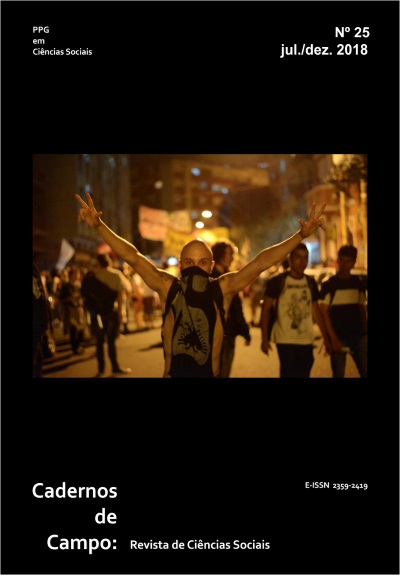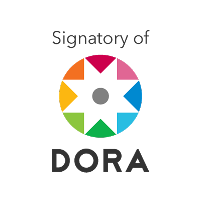Social media: implications on the democratic process
Keywords:
Social media, Facebook, Democracy, Elections,Abstract
Social media spreads news faster and increases the interaction between people connected to the Internet, besides having a growing participation in various activities, such as advertising, marketing and also in the democratic process. In a context in which representative democracy is faced with growing difficulties to offer solutions to increasingly complex issues, social media allows greater communication between persons. Among people through the World Wide Web. In this sense, these technologies prove to be useful to candidates to get support from the virtual environment. Given the success of presidential candidate Jair Bolsonaro (PSL) in the polls, the paper questions the extent to which the technological convergence between the Internet, wireless communication and mobile applications - such as Facebook and Twitter - supports the rise of political actor, amidst a context in which representative democracy faces difficulties in dealing with popular demands and expectations.Downloads
References
BETIM, Felipe. Fernando Holiday, o vereador incendiário nas redes e cordial na Câmara. El País, Madrid, 3 Nov. 2017. Disponível em: https://brasil.elpais.com. Acesso em: 25 Jun. 2018.
BRASIL. Propaganda Eleitoral na Internet. Justiça Eleitoral, 12 Jun. 2018. Disponível em: <http://www.justicaeleitoral.jus.br/arquivos/propaganda-eleitoral-na-internet>. Acesso em: 21 Jun. 2018.
CROZIER, Michel J.; HUNTINGTON, Samuel P.; WATANUKI, Joji. The Crisis Of Democracy. Report on the Governability of Democracies to the Trilateral Commission. 1.ed. New York University Press, 1975, pp. 157-171.
DELLA PORTA, Donatella.; MATTONI, Alice. Patterns of Diffusion and the Transnational Dimension of Protest in the Movements of the Crisis: An Introduction. In: Spreading Protest Social Movements in Times of Crisis. 2.ed. ECPR Press, 2014, pp. 1-18.
DIRETORIA DE ANÁLISE DE POLÍTICAS PÚBLICAS. Robôs, redes sociais e política no Brasil. Estudo sobre interferências ilegítimas no debate público na web, riscos à democracia e processo eleitoral de 2018. Fundação Getúlio Vargas, Rio de Janeiro, 2017. Disponível em: <http://dapp.fgv.br/publicacoes/>. Acesso em: 12 Jul. 2018.
FACEBOOK PARA EMPRESAS. 102 milhões de brasileiros compartilham seus momentos no Facebook todos os meses. Facebook Brasil, São Paulo, 19 Abr. 2016. Disponível em: https://www.facebook.com/business/news. Acesso em: 21 Jun 2018.
FOA, Roberto S.; MOUNK, Yascha. The signs of deconsolidation. Journal of Democracy, Washington, vol.1, n.28, pp. 5-14, 2017.
FUNG, Archon.; GILMAN, Hollie R. SHKABATUR, Jennifer. Six Models for the Internet + Politics. International Studies Review, vol.1, n.1, pp. 30-47, 2013.
GOLDZWEIG, Rafael S.; SCHMECHEL, Dinah. Deciphering the populist playbook in 140 characters. A Cross-country analysis of the patterns of Twitter use by populists. Master’s Thesis submitted to the Hertie School of Governance. Berlim: Hertie School of Governance, 2017.
INSTITUTO DE PESQUISAS DATAFOLHA. Intenção de voto para presidente da República. Instituto de Pesquisas Datafolha, São Paulo, 11 Jun. 2018. Disponível em: http://datafolha.folha.uol.com.br. Acesso em: 25 Jun. 2018.
KNIGHT FOUNDATION. American Views: Trust, Media And Democracy. Knight Foundation, Miami, 16 Jan. 2018. Disponível em: <https://knightfoundation.org/reports/american-views-trust-media-and-democracy>. Acesso em: 10 Jul. 2018.
LANDLER, Mark. In Inaugural Address, Trump Continues to Shun Establishment. The New York Times, 20 Jan. 2017. Disponível em: <https://www.nytimes.com/2017/01/20/us/politics/trump-presidency.html>. Acesso em: 10 Jul. 2018.
LIPSMAN et. al. The Power of “Like”. How Brands Reach (and Influence) Fans Through Social-Media Marketing. Journal of Advertising Research, Oxfordshire, vol. 1, n.1, pp. 40-52, 2012.
LOTAN et al. The Revolutions Were Tweeted: Information Flows During the 2011 Tunisian and Egyptian Revolutions. International Journal of Communication, Los Angeles, vol. 1, n. 5, pp. 1375–1405, 2011.
MACHADO, Leandro. Por que 60% dos eleitores de Bolsonaro são jovens? BBC Brasil, São Paulo, 16 nov. 2017. Disponível em: <https://www.bbc.com/portuguese/brasil-41936761>. Acesso em: 26 jun. 2018.
NYE, Joseph S. Prologue. In: NORRIS, Pippa (Org.). Critical Citizens: Global Support for Democratic Governance. 1.ed. Oxford University Press, 1999.
NIELSEN COMPANY. 2016 Nielsen Social Media Report. Nielsen Company, New York, 17 jan. 2017. Disponível em: http://www.nielsen.com/us/en/insights/reports/2017/2016-nielsen-social-media-report.html. Acessado em: 24 jun. 2018.
NORRIS, Pippa. Critical Citizens: Global Support for Democratic Governance. 1.ed. Oxford University Press, 1999.
PHARR, Susan et al. A Quarter-Century of Declining Confidence. Journal of Democracy, Washington, vol. 1, n. 11, p. 5-25, 2000.
PIVA, Juliana D.; MELLO, Igor.; SALGADO, Daniel. Bolsonaro aposta nas redes sociais para estruturar campanha. O Globo. Rio de Janeiro, 16 abr. 2018. Disponível em: <https://oglobo.globo.com/brasil/bolsonaro-aposta-nas-redes-sociais-para-estruturar-campanha-22592586>. Acesso em: 26 jun. 2018.
STREECK, Wolfgang. As Crises do Capitalismo Democrático. Novos Estudos, São Paulo, vol. 1, n. 92, pp. 35-56, 2012.
THE ECONOMIST. Do social media threaten democracy? The Economist, Londres, 4 nov. 2017. Disponível em: <https://www.economist.com/leaders/2017/11/04/do-social-media-threaten-democracy>. Acesso em: 12 Jul. 2018.
THE OMIDYAR GROUP. Is Social Media a Threat to Democracy? The Omidyar Group, 1 Out. 2017. Disponível em: <https://www.omidyargroup.com/wp-content/uploads/2017/10/Social-Media-and-Democracy-October-5-2017.pdf>. Acesso em: 25 Jun. 2018.
TUCKER, Joshua et. al. From Liberation to Turmoil: Social Media And Democracy. Journal of Democracy, Washington, vol. 28, n. 4, pp. 46-59, 2017.
TUFEKCI, Zeynep.; WILSON, Christopher. Social Media and the Decision to Participate in Political Protest: Observations From Tahrir Square. Journal of Communication, Oxford, vol. 1, n. 2, pp. 363–379, 2012.
XENOS, M. A.; MACAFEE, T.; POLE, A. Understanding variations in user response to social media campaigns: A study of Facebook posts in the 2010 US elections. New Media & Society, Chicago, vol. 1, n. 1, pp: 1-17, 2015.









